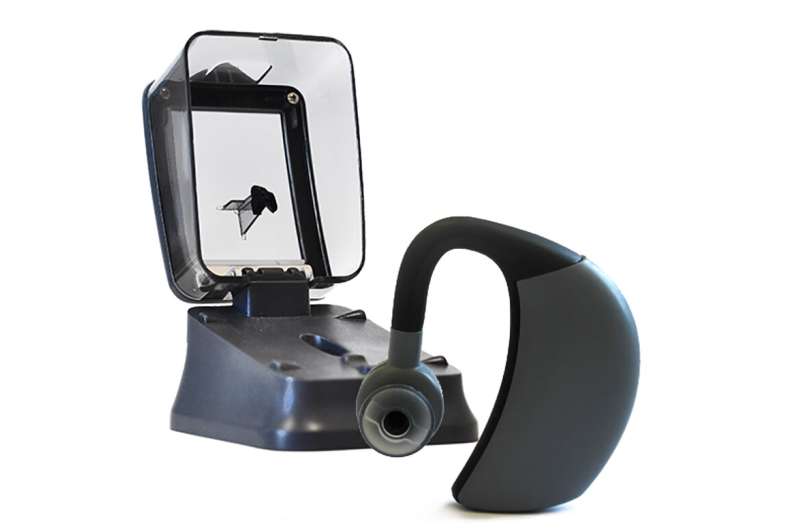Parkinson's patients use telehealth access for immediate speech improvement during COVID-19 pandemic

SpeechVive Inc. announced Thursday (Nov. 19) it is making its remote calibration software and training available free during the COVID-19 global health crisis. The software and training are available to all speech-language pathologists and their patients, as well as Veterans Affairs medical centers and veterans with Parkinson's disease.
Jessica Huber, a professor of speech, language, and hearing sciences and associate dean for research in Purdue University's College of Health and Human Sciences, decided to investigate the use of remote technology to calibrate the SpeechVive, an ear-worn device that provides immediate speech volume and clarity improvement for people with Parkinson's disease. Huber wanted to find a way to serve patients in rural and remote areas.
"We would get calls from people in rural communities who had to travel over two hours each way to find a qualified clinician," Huber said. "I wanted to make communication more accessible."
Ashleigh Lambert, vice president of clinical development and co-principal investigator for the telehealth trial, said, "In no way was a pandemic a reason we ever considered for use of our telehealth platform."
The remote calibration software platform was developed and studied with funding from a National Institutes of Health small business innovation and research grant. Huber's Purdue Motor Speech Lab studied the use of calibrating the SpeechVive remotely as compared to programming the device in-person.
The research showed that remote calibration is just as effective as in-person device programming sessions.
SpeechVive now partners with speech-language pathologists and neurologists to provide training and remote device programming for people with Parkinson's disease.
"We've found that many people with Parkinson's disease have delayed intervention for their speech during COVID-19 because the clinics are closed or have limited capacity to see patients as a social-distancing precaution," Lambert said. "We're providing our software platform free-of-charge to clinicians and customers to access SpeechVive from their homes. We believe communication is more important now than ever for people with Parkinson's, and we are part of the solution."
SpeechVive is an Indiana startup company based on Huber's research. The company has developed a wearable medical device to improve the speech clarity of people with Parkinson's.
"The SpeechVive device, which fits behind the patient's ear, detects when a patient is speaking and elicits louder and clearer speech through an involuntary reflex known as the Lombard Effect," said Huber, inventor and co-founder. "Approximately 89% of people with Parkinson's disease will have speech issues. Access to SpeechVive for those patients will make a significant improvement in their quality of life."
SpeechVive is a behind-the-ear smart device that helps people with Parkinson's disease speak more loudly and communicate more effectively. The SpeechVive device is based on the research of inventor and co-founder Jessica Huber at Purdue University. Clinical data over four years demonstrated SpeechVive to be effective in improving volume, articulation and speech rate in 90% of the people participating in two multisite clinical trials. It is estimated that 1.5 million people in the U.S. and 10 million people worldwide suffer from Parkinson's disease.
More information: For more information, see www.speechvive.com/




















